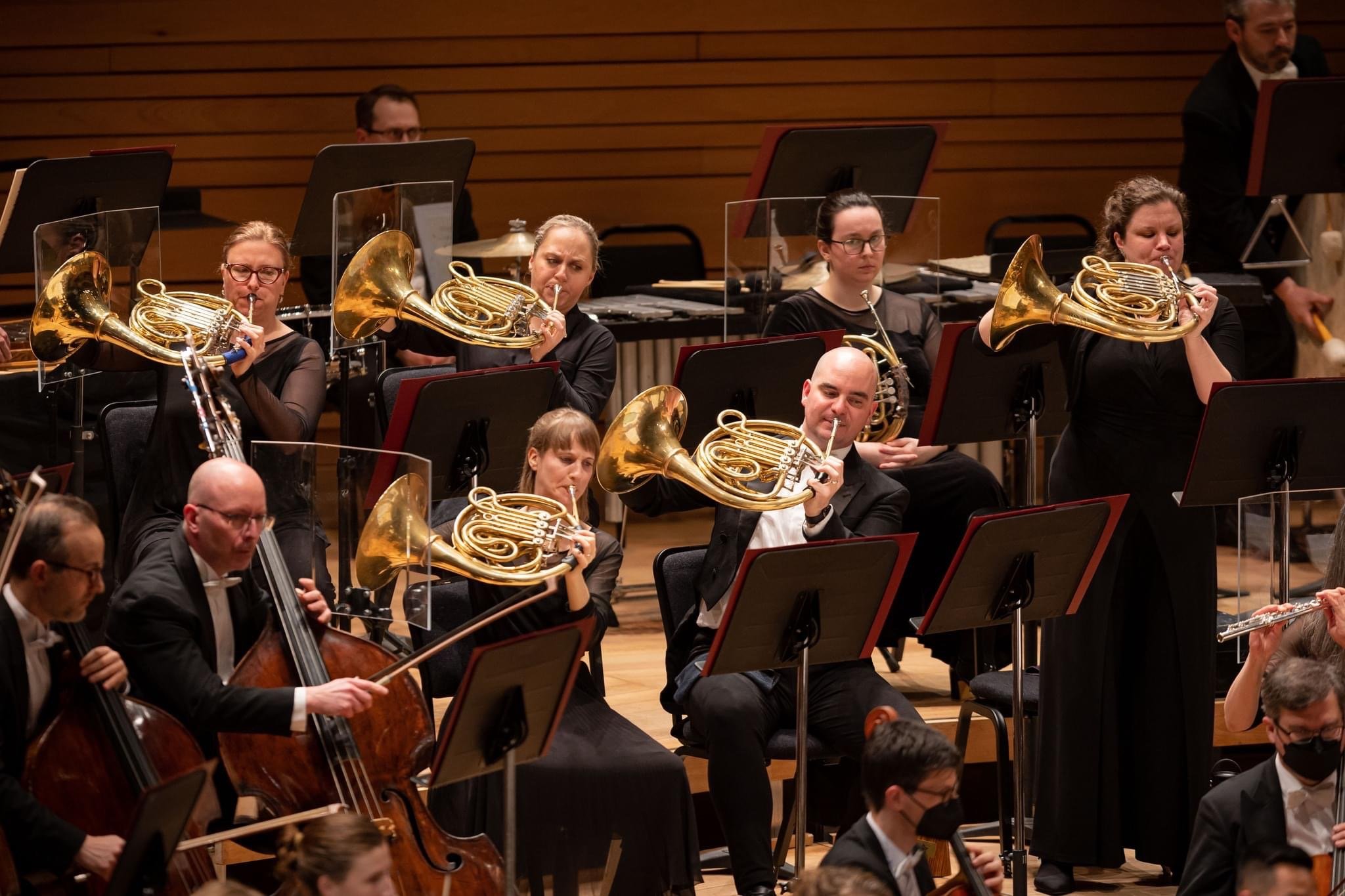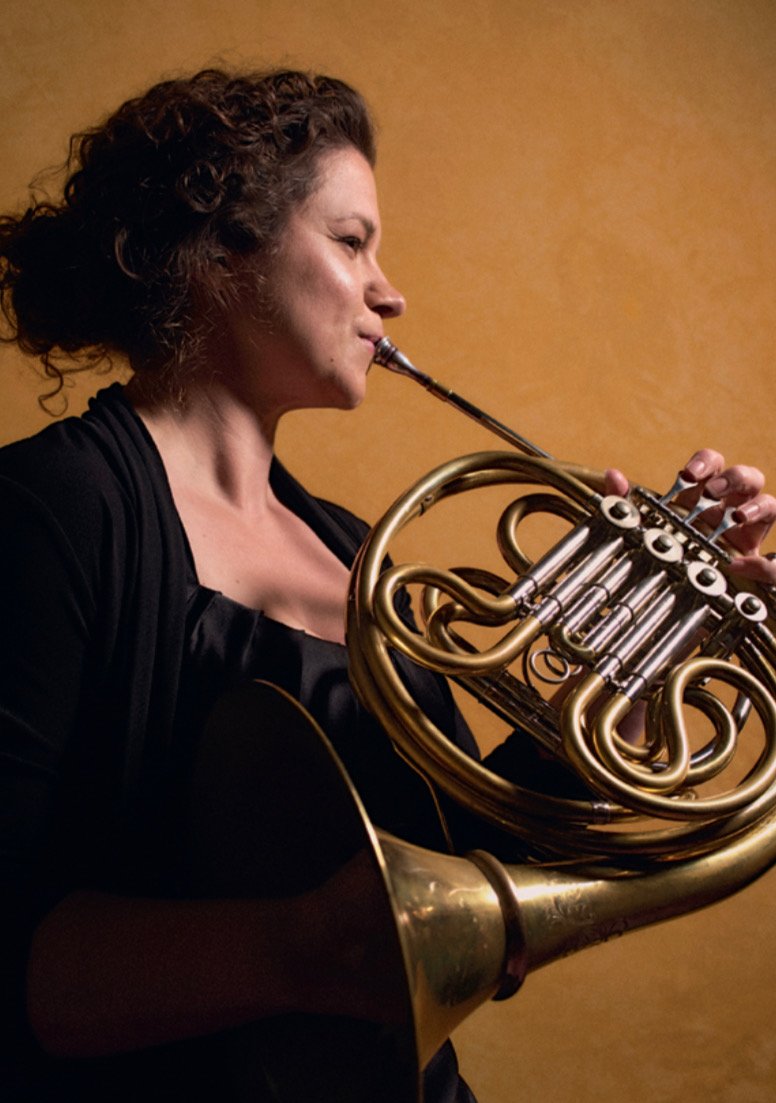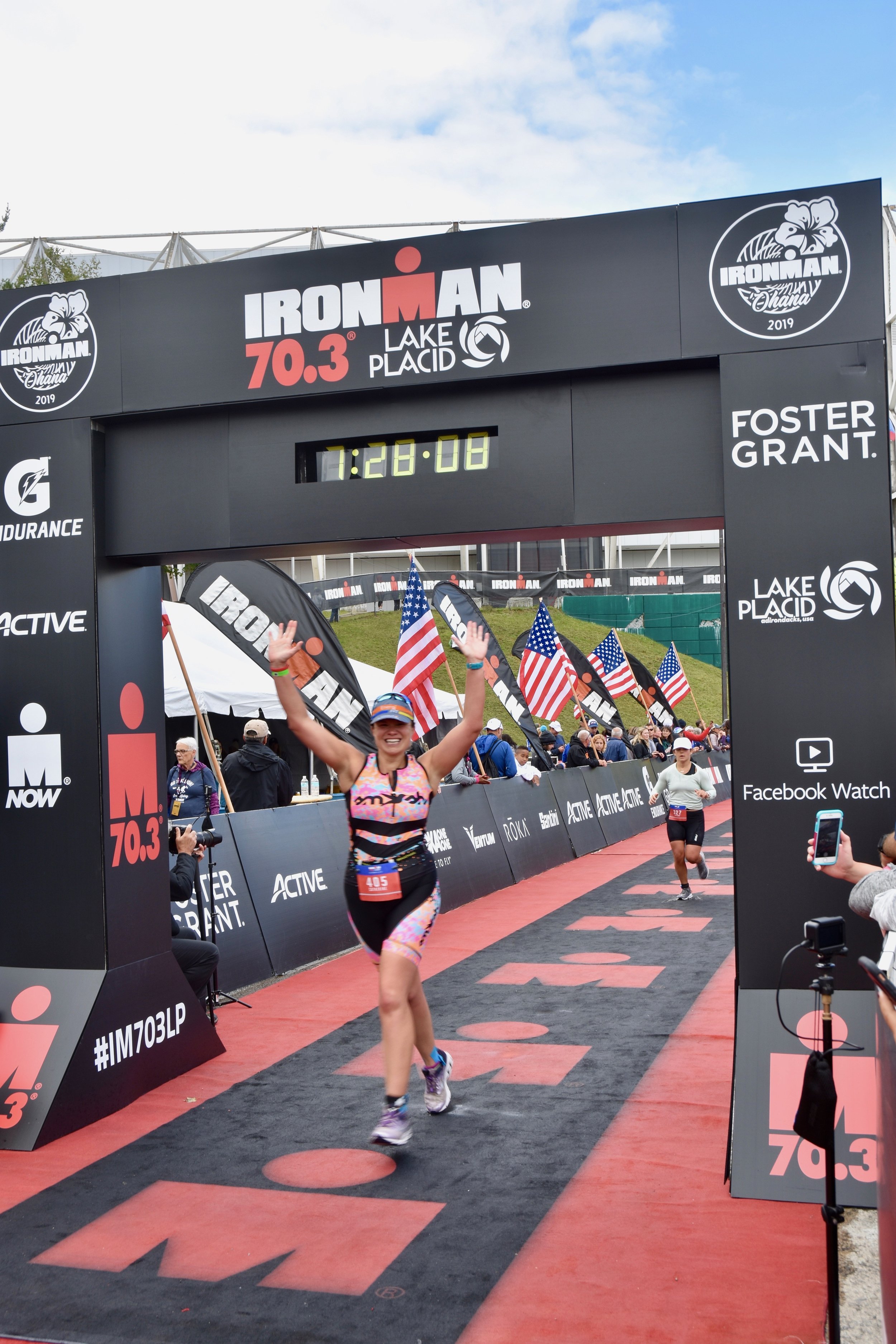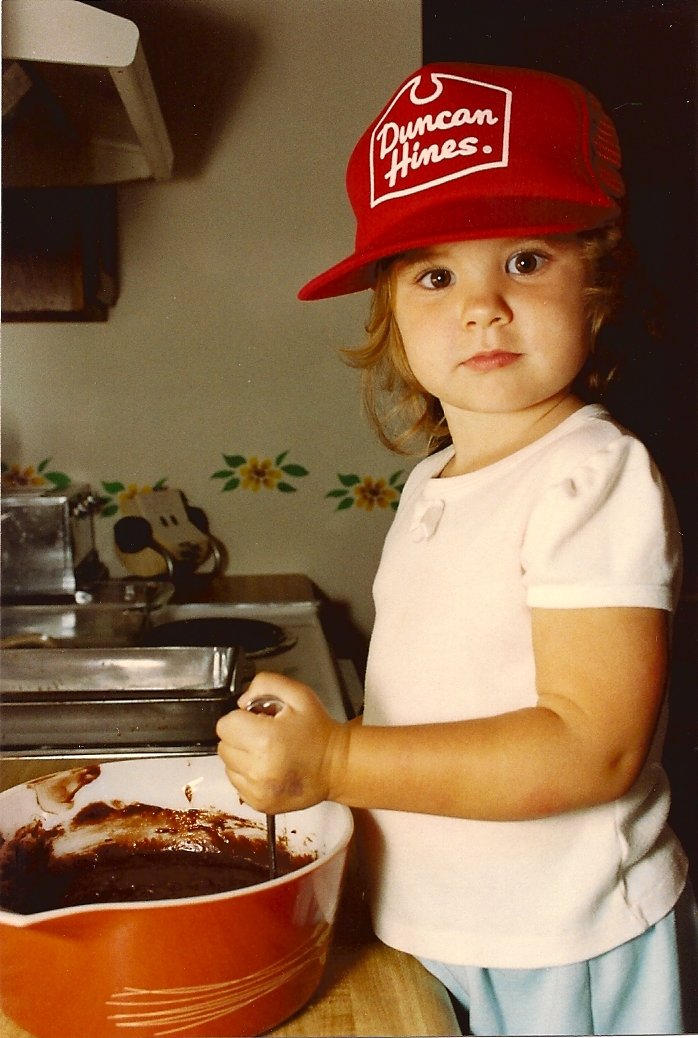Interview with Catherine Turner, Principal Horn of l’Orchestre symphonique de Montréal
Photo credit: Antoine Saito
This one has been a long time coming and I’m glad it’s the interview that finally breaks my almost-five-year interview hiatus!
Catherine Turner has been a friend and colleague for years and this felt like the perfect moment to dig into the journey she’s been on.
In this conversation, she reflects on the path from her very first note on the horn to her current role as Principal Horn of the OSM. We talk about leadership, burnout, mental focus, and—of course—cakes!
Can you share a bit about your path to the horn? What drew you to it initially, and what kept you hooked?
I started playing horn at 10 through my public school band program. Funny enough, when they came to show us the instruments, the horn wasn’t even one of them. The one horn player they had there to demo the instrument played a single note—pretty badly—and for some reason, I thought, that one.
There also happened to be a horn in our attic that belonged to my grandfather, who I never met. No one else in my family played, but I knew we had it. The band directors tried to talk me out of it—"Everyone who starts on horn quits because it’s too hard"—but I was stubborn, I remember thinking “isn’t that my problem?”. My mom says it was the first thing I ever really stood up for.
Since we already had the instrument, they couldn’t stop me. I didn’t take lessons for the first year—wanted to figure it out myself, which didn’t go great—but once I did, it clicked. I had a knack for it and my teachers encouraged me.
By around 16, I knew I wanted to do it professionally. I never had a plan B. It was always horn or bust—and luckily, it worked out.
You won your first job before you finished school. How do you think that early experience just starting straight out the gate influenced your growth and approach to the horn?
My first job (Asst/Utility in The Florida Orchestra) was a one-year position, which actually felt like the perfect stepping stone—it gave me a way to start working while knowing I could go back and finish school if I needed to. I’d always said if I won a job, I wouldn’t finish school, but I didn’t totally expect it to happen. Then it did.
I got the job right after my third year of undergrad, just before heading to Tanglewood. I remember thinking, I still have these issues in my playing... and now I don’t have a teacher to help me fix them. That realization kind of freaked me out—but it ended up being a gift. I had to start solving problems myself. My teacher’s approach to working on this one particular issue just hadn’t been clicking for me, and if I hadn’t been forced to get out there and figure it out for myself, it might have been a longer and more frustrating path to finding the answers.
So that first job really pushed me to become more self-reliant. I was only 21, super green, but I was lucky—the people I worked with were kind and patient. I took every audition I could that year and eventually won my second job: Fourth Horn in San Antonio.
That role was very different from my first. I got a ton of valuable experience—learning repertoire, playing in an orchestra regularly, and just figuring out the dynamics of working with colleagues. After a year and a half in San Antonio, I won my first major job: Second Horn in Montreal.
Having held both second and principal horn positions in Montreal, is your approach to these roles any different?
Yeah, my approach is definitely different—Second and Principal Horn are really different roles, and they ask you to be good at very different things. For a long time, I was frustrated that I was still playing second while trying to win a principal job. But looking back, I’m really grateful for that time.
Playing second taught me a lot about what I value in a principal—and also what I don’t want to emulate. Playing many different roles in many different orchestras, I’ve had some difficult experiences where I felt treated poorly, and while that was frustrating at the time, it shaped how I now try to lead. It showed me what to do and what not to do if you want to get the best out of your section.
Having played every position has given me perspective. I have a better sense of what each role needs, how they work together, and how to foster a strong team dynamic. That range of experience helps me approach principal horn not just as a leader, but as someone who understands the view from every chair.
Mahler 5 with the OSM.
Do you have any mental focus techniques or strategies that help you when the pressure's on, both in the moment and in general preparation?
I’ve spent a lot of time thinking about mental focus—like most of us—and I’ve found Don Greene’s Train Your Own Hero really helpful. I used his centering exercises and preparation method when I won the principal auditions in both Montreal and Baltimore, and they’re something I return to when nerves hit.
Often in the moment when I am nervous, my mind tends to race and get ahead of itself, or wander off somewhere completely unhelpful, which can throw off coordination. One of the best strategies for me is staying hyper-focused on the note I'm playing—literally keeping my eyes on it on the page. That helps keep me anchored in the present.
I also try to prepare every entrance mindfully: take a deliberately timed breath, have a clear sound image, and fully commit to the plan. When I don’t do that, that’s when mistakes creep in—when the mental picture isn’t clear or I hesitate.
It’s like meditation: your mind will wander, but the key is noticing and gently bringing it back without judgment. That habit—returning to focus without getting stuck in self-criticism—is probably the most useful mental tool I have.
What do you do to maintain your physical and mental well-being and avoid injury or burnout in a long, heavy season?
Photo credit: Antoine Saito
In an ideal world—do as I say, not as I do—I’d be way more consistent about this. I actually hit a serious wall a couple months ago. Total burnout. But I think it’s important to talk about that kind of thing, because even people who look like they have it all together are often struggling behind the scenes.
When I’m functioning at my best, I start each day with a fundamentals routine—about 40 minutes to an hour—that keeps me in shape and helps prevent injury. Realistically, I don’t always have time for the full thing, especially during heavy weeks with something like Mahler on the stand. But I try to do what I can gently and with intention, even if I’m tired.
That warm-up is the foundation for playing well and staying healthy through long seasons. On top of that, when life is more balanced, I like to train physically—I've done a lot of triathlon training in the past. Regular exercise outside of horn playing helps me manage stress, sleep better, and stay physically strong enough to avoid repetitive strain injuries.
But lately, life’s been full-on. The past few years brought a ton of change and chaos and I haven’t been training like I want to. I feel worse for it—physically, mentally, emotionally. It’s been a stretch of just surviving, and I’m only now starting to feel like I’m coming out the other side.
So right now, I’m working on rebuilding. Trying to get back into those habits that helped me feel strong and balanced, and setting myself up for less burnout in the future. It's still a process, but things are finally starting to feel more manageable.
You're a triathlete and marathoner. What sparked your interest in endurance sports?
I actually hated sports as a kid. I couldn’t stand the feeling of physical effort—running was the worst thing in the world. I swam on a team for eight years, but I was the kid putting in the bare minimum. I only got better my last year, when I finally started trying. Then high school came along, and when they told me swim practice would be before and after school, I was like, no thanks.
I didn’t come back to sports until I was in San Antonio. I’d started swimming a bit again for fitness. I noticed so many people that I liked and respected were really into running. I thought, Okay, if these smart, cool people love this, maybe I’m missing something. I was young, no injuries—why not try?
So I printed out the Couch to 5K plan. I ran my first 5K and was unbelievably proud—it was something I genuinely thought I could never do. That moment was huge for me. I’d always felt like physical accomplishment wasn’t for me, but suddenly I was doing it, and it felt amazing.
It became addictive in the best way. I ran the 5K and immediately thought, Okay, what’s the next thing? That’s the musician mindset, right? You hit one goal and immediately look toward the bigger challenge. So I set my sights on a half marathon… and then promptly stress-fractured my foot. Classic.
After I healed, I got back into it, and that’s when triathlons entered the picture. I thought, Well, I can swim, I can run, and I can ride a bike—why not? I joined a team from the OSM that was doing the Ride to Conquer Cancer, a two-day, 200-kilometer ride from Montreal to Quebec City. I bought a road bike, trained, and completed it—and suddenly I had all the pieces to do a triathlon.
I started with a sprint triathlon—750m swim, 20K bike, 5K run—and it was the coolest thing ever. Super fun, manageable, and it made me feel like I’d truly accomplished something without totally wrecking my body. It was addictive. I did a few more sprints, then Olympic-distance races, and eventually a half Ironman—which is hands down my proudest non-musical accomplishment. I’m really proud of that.
Do you find that any of your training habits or mindset from sports carry over into how you approach playing the horn and vice versa?
Definitely—there’s a ton of overlap between the mindset required for endurance sports and for playing the horn. I especially noticed it when I was training for a marathon. The mental endurance it takes to get through long workouts—those stretches where you just have to stay focused and keep going—directly translated to how I approached my work as a musician.
Whether it’s counting a long rest, playing through a physically demanding piece, or staying mentally sharp during a long rehearsal, it started to feel really similar to the pacing and mental control I’d practice during long runs. I felt like my brain was handling those tasks more efficiently because I was getting that kind of training in two places.
And it goes the other way, too. As musicians, we’re used to structured practice and goal setting. We know how to repeat things, how to break problems down, how to trust the process—and that transfers really well to sports training. I actually think musicians are better equipped than most people to train for something like a triathlon or marathon, because we already understand how to work toward long-term goals.
It’s funny—my parents were both high-level athletes, not musicians, and when I was younger they’d always try to compare music to sports. I’d roll my eyes and be like, you don’t get it. But now I’m like… yeah, it’s exactly the same. (Just don’t tell them I said that.)
Compared to when you were in school, how do you think the landscape has changed for young musicians starting out, especially when it comes to auditions and breaking into the orchestra world?
It’s hard to say exactly how it’s changed, but in a lot of ways, musicians starting out now have real advantages we didn’t. The access to knowledge and resources is just so much greater. I mean, we used to go to the library to burn CDs and hunt for recordings or excerpts—now you can stream anything instantly. IMSLP didn’t exist, so just finding a part could be a whole ordeal. Even those CD-ROMs with all the parts felt like groundbreaking tech at the time!
And beyond that, there’s more access to the people in the profession. With social media, email, and open conversations online, young musicians can connect directly with orchestra members, ask questions, and learn what the job is really like—something that felt way more distant when we were in school.
That said, I do think it’s harder now in some ways, especially financially. There may be fewer jobs overall and the cost of living has gone up so much that even jobs that used to be “survivable” on a shoestring budget just don’t cut it anymore. You used to be able to live on a $30k-a-year job if you were scrappy, but that’s much harder now.
It’s always been a tough career path. Even when I started, people joked about the whole “starving artist” stereotype. My brother, who’s an engineer, used to say he’d let me live in a cardboard box on his driveway one day. It was a joke—but also kind of how people saw it. And honestly, even with a job, it’s still not easy. It never has been.
Do you think the audition system is due for change?
I don’t think there’s any perfect system—every approach has flaws. My orchestra uses a 100% blind audition process and every rule in our contract is designed to preserve candidate anonymity. I do think that’s the most fair system we currently have, because it helps us do the best we can to keep decisions focused purely on sound, without letting conscious or unconscious bias creep in.
But even that isn’t without problems. It’s still really hard to choose. Some amazing musicians might just not have their best day. And auditions themselves are so unlike the actual job—they’re sterile, high-pressure snapshots that don’t reveal things like how someone plays in a section or collaborates with others. Those are crucial skills that just don’t come across behind a screen in a 10-minute round.
So yeah, I think there are definitely aspects of the audition process that are due for change—but I don’t think we’ve found a better alternative yet. I’ve heard someone say it’s the worst system—except for all the others. That kind of sums it up.
As for standardizing audition procedures across orchestras? In theory, it could be great. But realistically… good luck. Every orchestra has its own contract, culture, and process. That said, I do think more and more groups are trending toward fully blind auditions and trying to make things as fair as possible, which is encouraging. Each time we renegotiate our own contract, we revisit what could be improved—and every idea comes with its own pros and cons.
Let’s talk about your awesome cakes! How did you get started in that?
I’ve always been into baking—there’s actually this hilarious photo of me as a kid in a Duncan Hines chef hat, fully committed to the bit. My dad worked for Procter & Gamble, so I was repping the brand early. But yeah, baking has always been something I loved.
As I started cooking more on my own, it turned into a creative outlet. Just like with music and sports, I’d push myself: What’s the next challenge? Croissants, intricate desserts—you name it. Then during the pandemic, I had all this time and nowhere to be, so I really dove in.
I’d already made a few custom birthday cakes for a friend who gave me wild design challenges. But in lockdown, I started leaving birthday cakes on people’s doorsteps just to brighten their day. And when I brought a decorated cake into work—this elaborate one with icing succulents—everyone freaked out in the best way. That kind of kicked things off.
I casually said, If anyone wants a cake, I’ll take orders, and suddenly I was baking nonstop—fancy themes, all kinds of decorations. I learned a lot about piping, played with fondant (though I try not to use it—it’s kind of gross), and really got into the arts-and-crafts side of cake design. It was such a fun, creative outlet when the rest of life was on pause.
Now that I’m back to full-time work and with a busier schedule, I don’t bake nearly as often. But I still love it—it’s a hobby that brings me (and hopefully other people) a lot of joy.
Favorite cake?
Flavor-wise, my favorite is probably the hazelnut cake with chocolate buttercream. Honestly, it’s hard to beat. It’s so good.
Design-wise, it’s hard to choose. I’ve loved so many of them. I’ve even done a few wedding cakes, which were terrifying but also really fun. There’s something extra special about making a cake for a moment that big.
Piece you never get tired of playing?
Mahler 5.
Do you remember the very first thing you ever wanted to be when you grew up?
I don’t know if it was the first thing, but I do remember telling my parents I wanted to be a roller skater. Not an ice skater—a roller skater. They suggested maybe ice skating would make more sense, but I was adamant!
****
Catherine Turner is the Principal Horn of the Orchestre Symphonique de Montréal (OSM). Her solo playing on their 2024 recording of Ein Heldenleben (Pentatone) was described by Classical Explorer as “simply stunning…her control over her instrument is total.” Before her appointment as Principal Horn in 2022, she held the position of Second Horn in the OSM since 2010.
Catherine has also performed as principal horn with the Baltimore Symphony (2021-22) and Colorado Music Festival (2015-23) and as guest principal horn with the New York Philharmonic, San Francisco Symphony, Detroit Symphony, National Arts Center Orchestra, Manitoba Chamber Orchestra, and Les Violons du Roy. She was also invited to play guest associate principal horn with the Cincinnati Symphony.
As a soloist, she has been featured with the Colorado Music Festival Orchestra and the Aspen Music Festival Orchestra, and has given solo recitals at the University of Ottawa, Colorado State University, and University of Akron.
As an educator, Catherine has presented masterclasses throughout North America, and she is currently an instructor of horn at McGill University.
A native of West Chester, Ohio, Catherine began her own studies with Greg Snyder and Karen Schneider, before attending Rice University’s Shepherd School of Music.
Catherine is also an accomplished triathlete, a semi-pro baker, and the proud dog mom of a Spanish greyhound named Toast.





